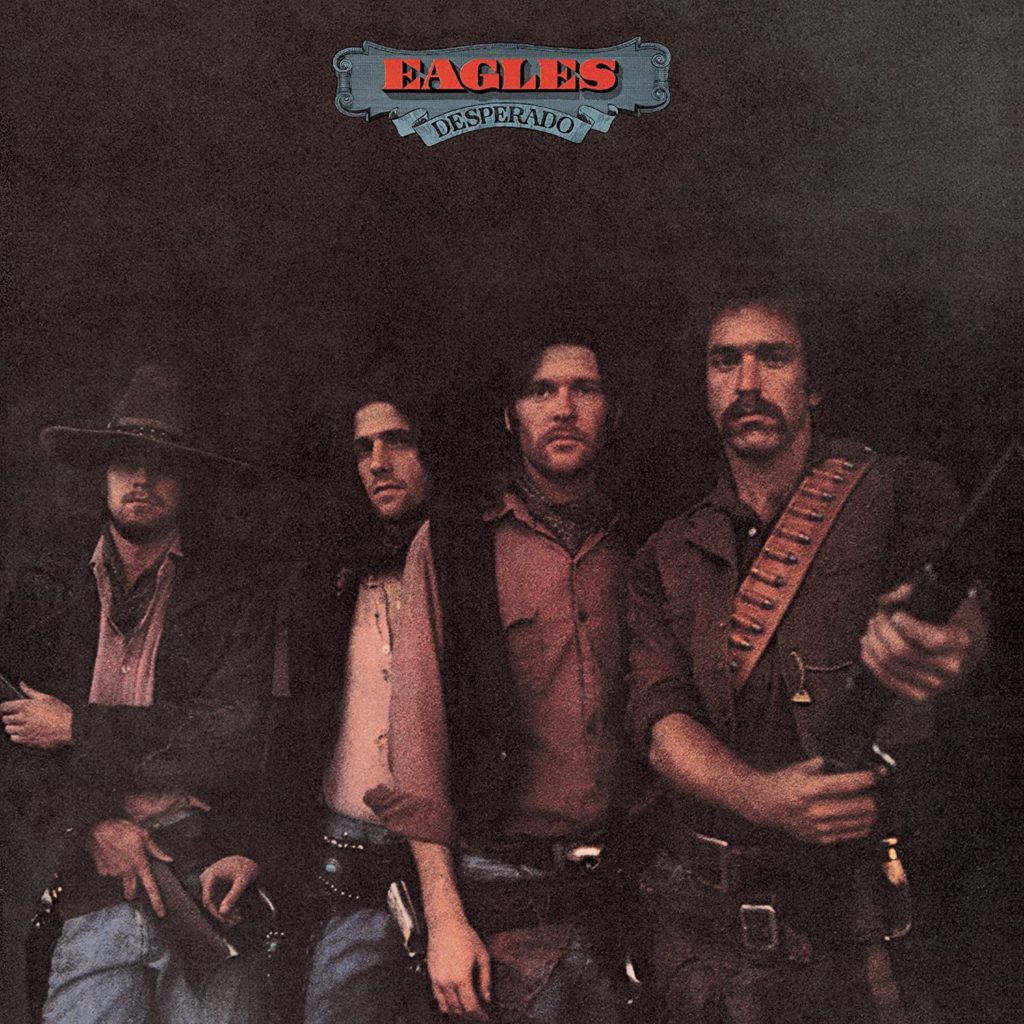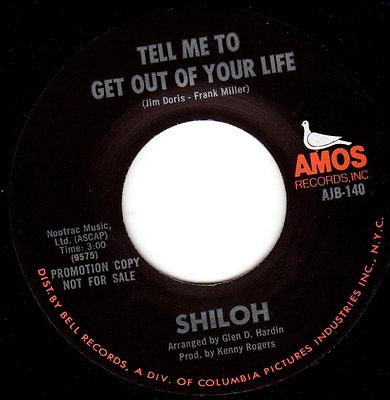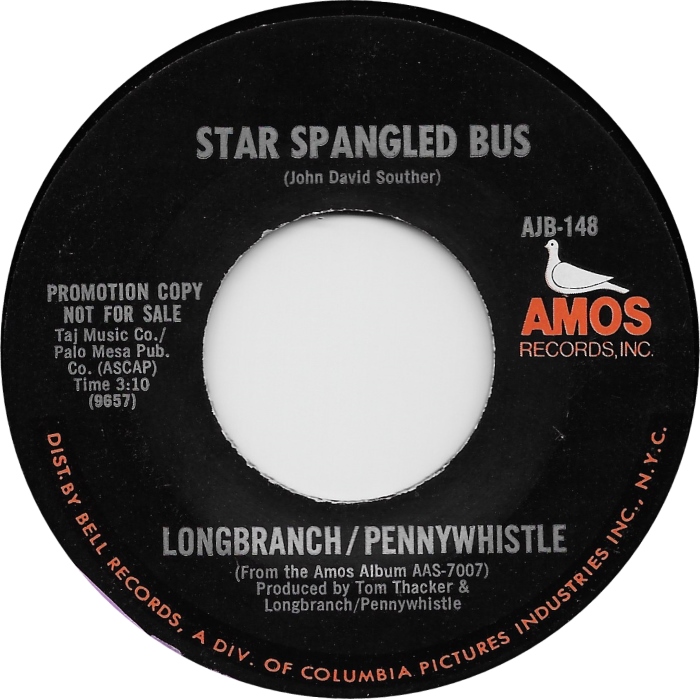“Till Bill Doolin met Bill Dalton
He was workin’ cheap, just buyin’ time
And then he laughed and said I’m goin’
And so he left that peaceful life behind” – Doolin-Dalton (Henley, Frey, Browne, Souther) © Red Cloud Music, Warner Chappell Music, Inc.
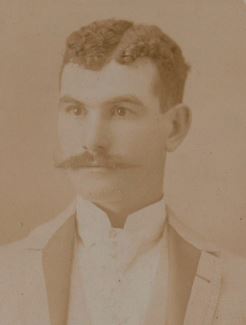
William “Bill” Doolin was born in Johnson County, Arkansas, in 1858. He grew up toiling on his family’s farm until his twenty-third birthday when he left home hoping to find work as a cowboy.
Doolin drifted west, working a succession of odd jobs before finding employment at the H-X Bar Ranch, located on the Cimarron River in Indian Territory (present-day Oklahoma). The enterprise was owned by a man named Oscar Halsell, who after taking a liking to Doolin, began teaching him to read & write, along with some simple arithmetic. Believing Doolin to be honest and trustworthy, Halsell eventually made him an informal foreman on his ranch.
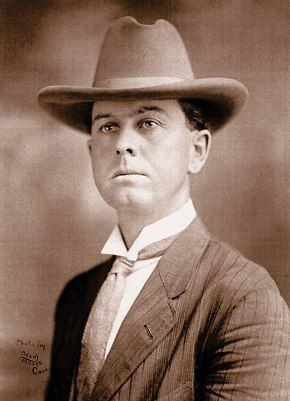
It was during his tenure at the H-X Bar Ranch that Bill Doolin met Emmett Dalton, and throughout the ensuing decade, he would end up meeting and working with a number of other cowboys that he would later associate with as an outlaw.
“They were Doolin, Doolin-Dalton
High or low, it was the same
Easy money, and faithless women
Red-eye whiskey for the pain” – Doolin-Dalton (Henley, Frey, Browne, Souther)
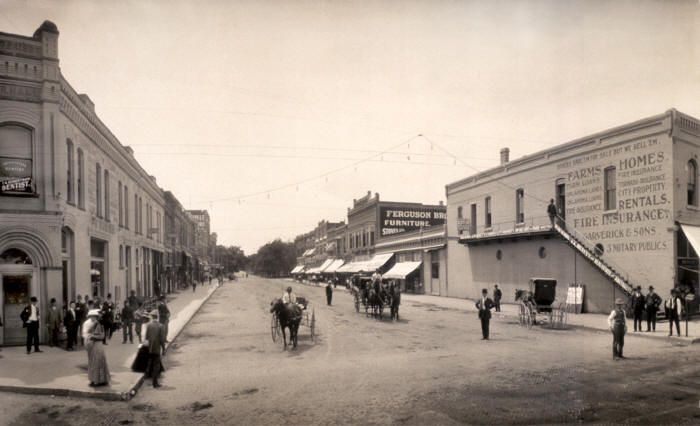
Losing interest in living the predictable life of a ranch hand, and having taken to hanging with a rough crowd, Bill Doolin had his first run-in with the law in 1891 in Coffeyville, Kansas. To celebrate the 4th of July, Bill and several friends had tapped a keg of beer and proceeded to get drunk. Kansas was a dry state, and when lawmen attempted to confiscate the alcohol, a gunfight broke out. After two lawmen were wounded in the exchange, Doolin and his associates quickly cleared out of town.
Now a wanted man, it wasn’t long before Bill Doolin hooked up with Emmett Dalton, his brothers Bob, Bill & Grat, and a group of other men who together were known as the Dalton Gang. It was at this point that Doolin enthusiastically embarked on his career as a criminal.
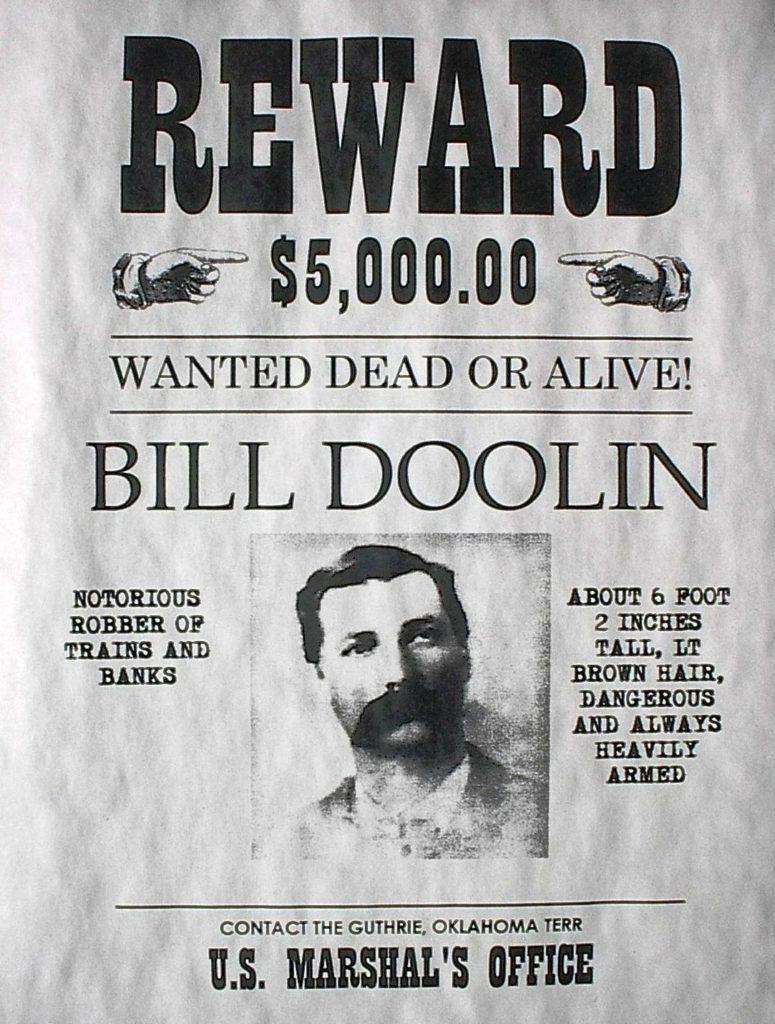
“Go down Bill Dalton, it must be God’s will
Two brothers lyin’ dead in Coffeeville
Two voices call to you from where they stood
‘Lay down your law books now, they’re no damn good’” – Doolin-Dalton (Henley, Frey, Browne, Souther)
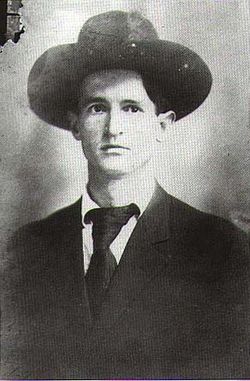
Bob Dalton 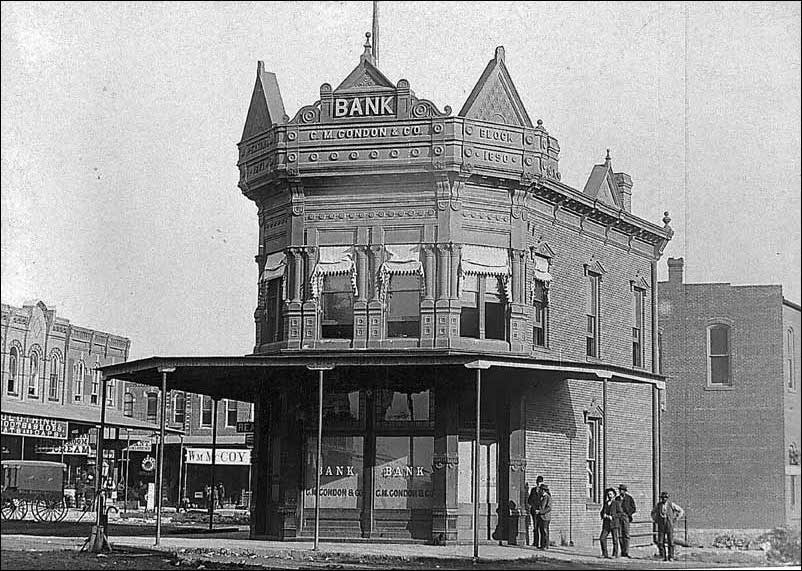
Condon Bank, Coffeyville, Kansas
The gang was dominated by Bob Dalton, who has been described as ambitious. He once claimed he would “beat anything Jesse James ever did—rob two banks at once, in broad daylight.” The Dalton Gang attempted to do just that on October 5, 1892, when they planned to rob the C.M. Condon & Company’s Bank and the First National Bank on opposite sides of the street in Coffeyville, Kansas. The failed bank robberies would claim the lives of Bob & Grat Dalton, as well as gang members Dick Broadwell and Bill Powers; Emmett Dalton received twenty-three gunshot wounds, was apprehended, and given a life sentence, of which he would serve fourteen years before being pardoned; Bill Dalton had been waiting a short distance from town with Bill Doolin and spare horses, and both men managed to avoid detection.
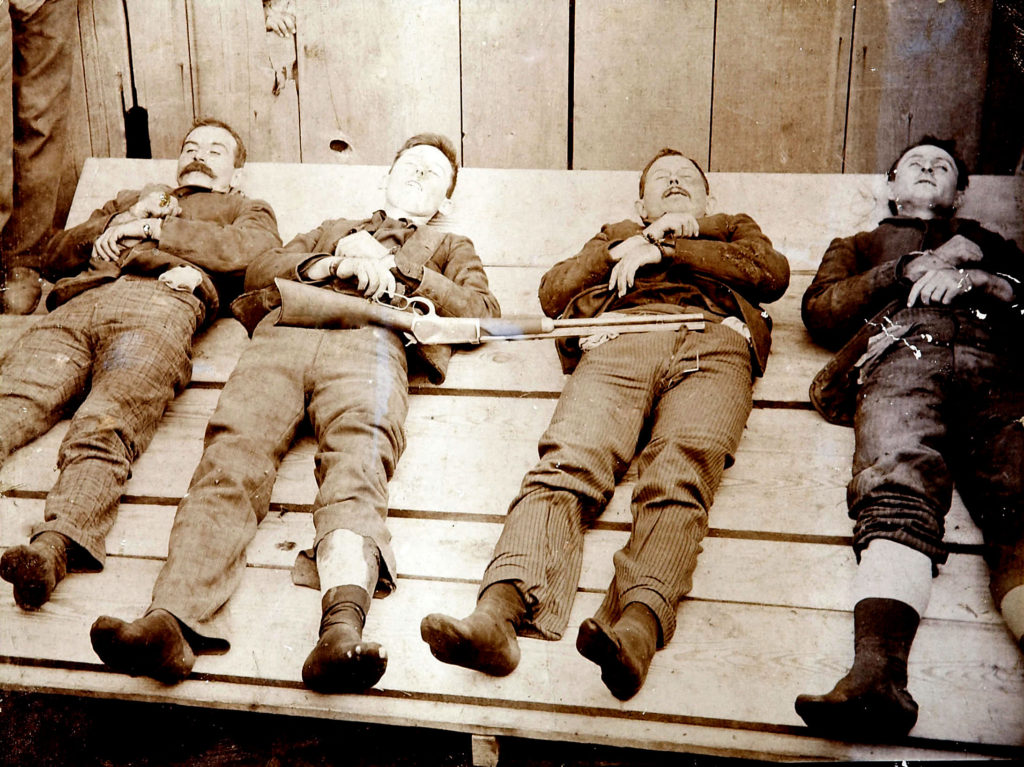
The two Bills continued their lives of thievery along with several other desperados in a new association that was variously known as the Doolin-Dalton Gang, the Wild Bunch, or the Oklahombres.
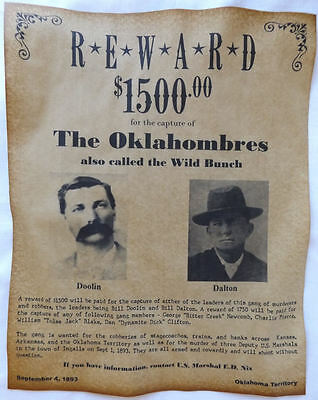
“Better keep on movin’, Doolin-Dalton
Till your shadow sets you free
And if you’re fast, and if you’re lucky
You will never see that hangin’ tree” – Doolin-Dalton (Henley, Frey, Browne, Souther)
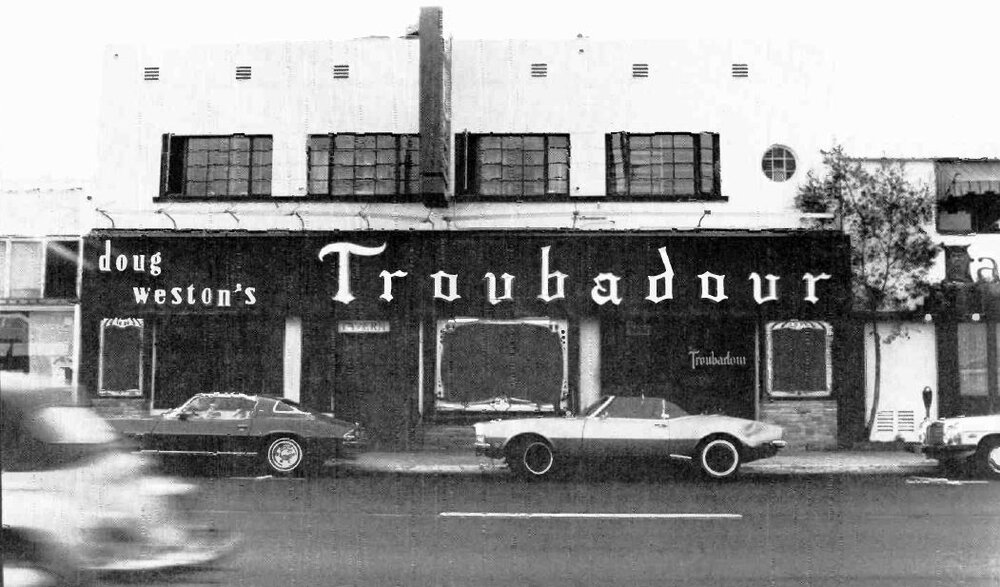
Don Henley met Glenn Frey in 1970 at Doug Weston’s Troubadour in West Hollywood, California. Henley had come to LA from Texas with his band Shiloh, where they were to record an album produced by Kenny Rogers. Frey had come to LA from Michigan and formed a duo called Longbranch Pennywhistle with John David Souther. By coincidence, both happened to be signed to the same label, Amos Records.
In early 1971 Henley & Frey were recruited by Linda Ronstadt’s manager, John Boylan, to accompany Linda as part of her backup band. It was while touring with Linda that Henley & Frey decided to start a group together. Informing Linda of their decision, it was her suggestion to include Bernie Leadon; they also reached out to bassist Randy Meisner with their idea for a band. All four of the musicians had performed live with Linda at a Disneyland gig in July.
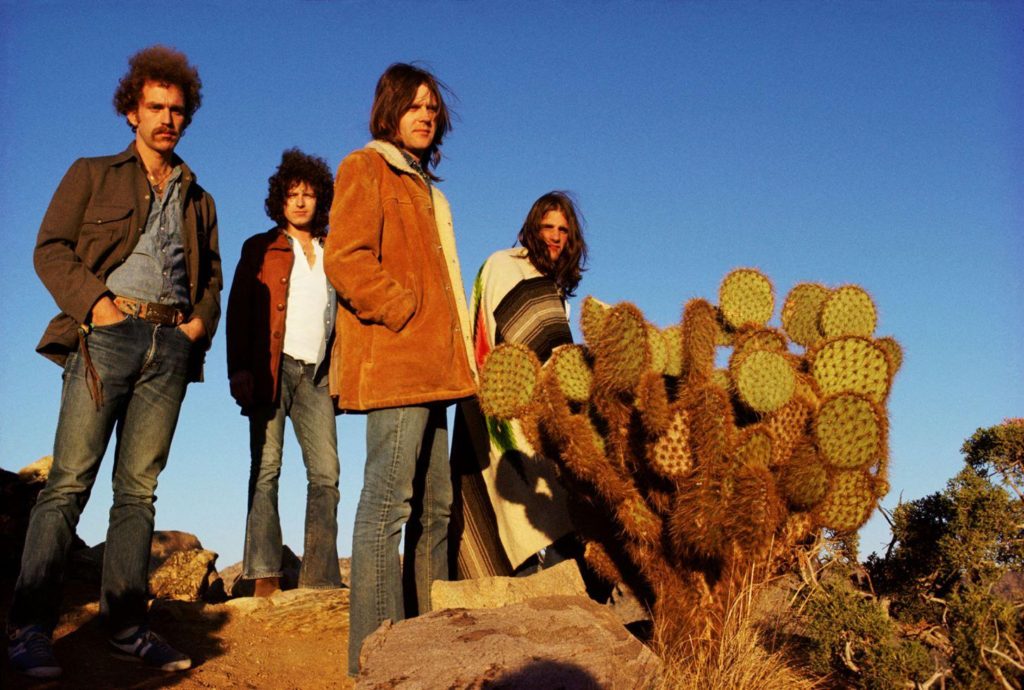
Henley, Frey, Leadon, and Meisner were signed in September 1971 to David Geffen’s new Asylum label, and not yet having settled on a name, the group played their first show in October as Teen King and the Emergencies at a club called The Gallery in Aspen, Colorado.
While there are differing accounts as to the origin of the band’s name, their eponymous first album, Eagles, released in June 1972, was a solid success, yielding three Top 40 singles – “Take It Easy”, “Witchy Woman” & “Peaceful Easy Feeling” – which reached #12, #9 and #22 respectively on the Billboard Hot 100. The album also firmly established the band’s country-rock sound.
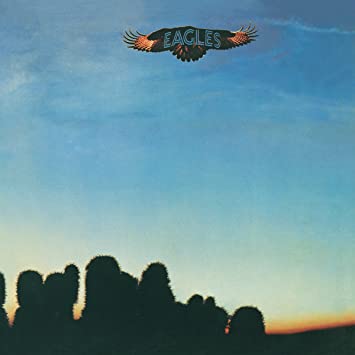
“I am an outlaw, I was born an outlaw’s son
The highway is my legacy
On the highway, I will run
In one hand I’ve a Bible
In the other, I’ve got a gun
Well, don’ you know me
I’m the man who won” – Outlaw Man (David Blue) © Warner Chappell Music
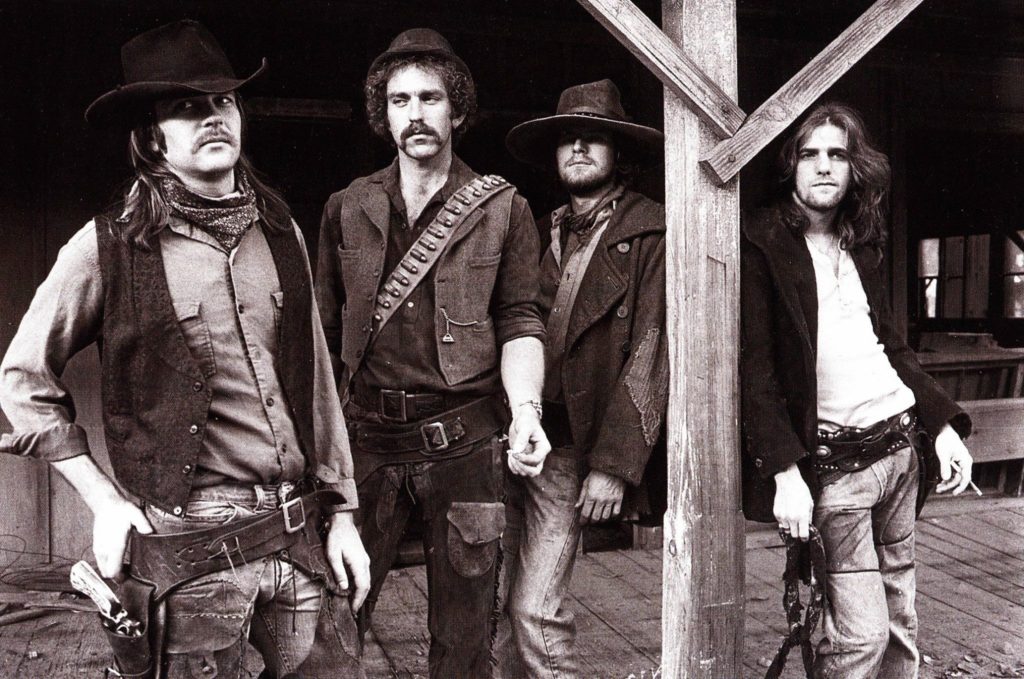
For their sophomore outing, Glenn Frey proposed that the Eagles make a concept album. According to Frey, after a night of jamming with his cohorts, they had the idea of doing an album about anti-heroes. A source of inspiration cited was a book on gunfighters of the Wild West given to Jackson Browne for his 21st birthday. Browne showed the book to Frey & Henley and suggested it as a theme. The book featured stories of the Doolin-Dalton gang, among others, which influenced the album’s lead-off track, and helped establish the offering’s Western theme.
During the recording of Eagles in England, Glenn Frey and Don Henley decided they should write songs together. One of their first collaborations became the second album’s title track, “Desperado”, based on a song that Henley had begun writing in 1968. After returning from London, in their first songwriting session together, Henley played his composition for Glenn Frey. He explained to Glenn, “When I play it and sing it, I think of Ray Charles and Stephen Foster. It’s really a Southern Gothic thing, but we can easily make it more Western.” Henley recalls that Frey “leapt right on it – filled in the blanks and brought structure”, adding, “And that was the beginning of our songwriting partnership … that’s when we became a team.”
“It’s another tequila sunrise
Starin’ slowly ‘cross the sky
Said goodbye
He was just a hired hand
Workin’ on the dreams he planned to try
The days go by” – Tequila Sunrise (Frey / Henley)
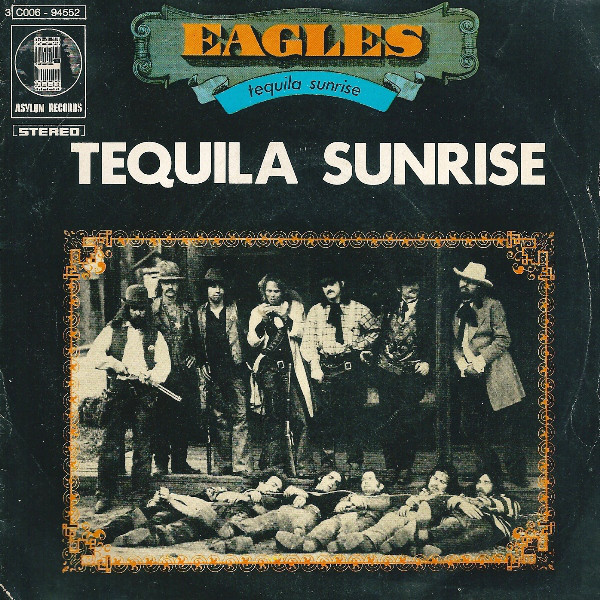
The first single released from Desperado, “Tequila Sunrise”, was written by Frey & Henley in the same week that they wrote the title track. They would also be involved in the writing of eight out of eleven tracks that appear on the album.
“First left my woman, it was down in Santa Fe
Headed for Oklahoma, I was ridin’ night and day
All of my friends are strangers
They quickly come and go
And all my love’s in danger
‘Cause I steal hearts and souls” – Outlaw Man (David Blue)
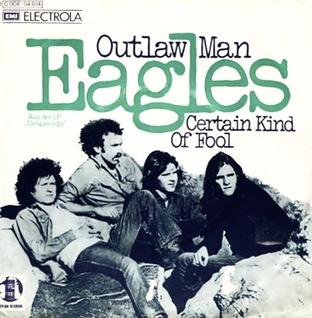
The second single released from the album was, “Outlaw Man.” Written by David Blue, with lead vocals from Glenn Frey, the song continues the outlaw/anti-hero motif, while also lending itself to the Old West theme. It is the only song on the album which was not written by a band member.
“Twenty-one and strong as I can be
I know what freedom means to me
And I can’t give the reason why
I should ever want to die” – Twenty-One (Bernie Leadon)
“Twenty-One” is the album’s second track. Written by guitarist Bernie Leadon, the title of the song refers to the age of Emmett Dalton at the time of the failed Coffeyville bank robberies, when he was shot 23 times, but lived to be convicted and sentenced to life in prison.
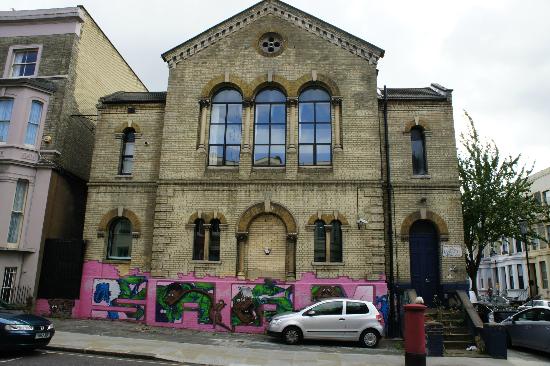
Desperado was produced by Glyn Johns and recorded at Island Studios in London over a period of four weeks. Working to complete the album quickly and economically, Johns would limit each track to four or five passes, refusing requests from the band for more takes. It is reported that when Johns played the completed album in its entirety for the band, they were so pleased with the result that they carried their producer from the control room on their shoulders.
However, when the album was played for Jerry Greenberg, the president of Atlantic Records, he exclaimed, “Jeez, they’ve made a f***ing cowboy album!”
Released in April 1973, Desperado was not initially a commercial success. It remains the Eagles’ lowest charting album to date and did not include any hit songs, as both its singles – “Tequila Sunrise” & “Outlaw Man” – failed to break into the Top 50 in the singles chart. Paul Gambaccini of Rolling Stone concluded his review of the album: “Desperado won’t cure your hangover or revalue the dollar, but it will give you many good times. With their second consecutive job well done, the Eagles are on a winning streak.”
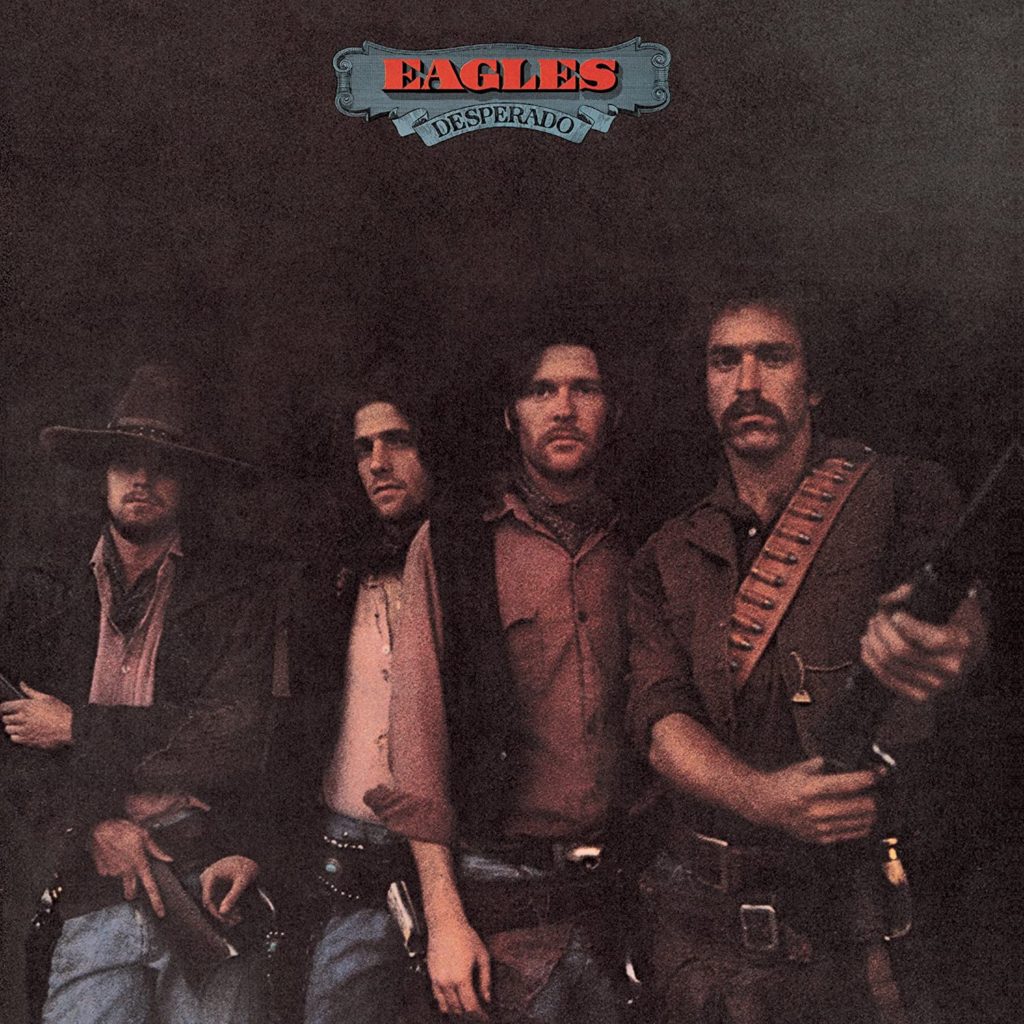
Desperado was certified double platinum in 2001. The album is also noted for contributing two songs which have become staples of the Eagles repertoire (“Desperado” & “Tequila Sunrise”). In his book, Desperados: The Roots of Country Rock, music writer John Einarson states that the album “would set the tone for all the later soft country-rock sounds, and impact what would become the foundation of ‘new country’, in both image and music.”
“Go down, Bill Doolin, don’t you wonder why
Sooner or later we all have to die?
Sooner or later, that’s a stone-cold fact
Four men ride out and only three ride back” – Doolin-Dalton/Desperado (Reprise)
For a period the Wild Bunch were the most infamous gang of outlaws in the Old West, but due to the persistence of the US deputy marshals known as the Three Guardsmen (Bill Tilghman, Chris Madsen, and Heck Thomas), by the end of 1894, they had either captured or killed most of the gang.
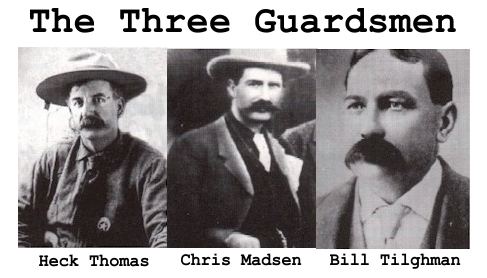
In early 1896, Bill Tilghman captured Bill Doolin while the outlaw was soaking in the sulfur springs of northwestern Arkansas. He was there to relieve the rheumatism in his foot that had been caused by an earlier gunshot wound. On July 5, while awaiting trial, Doolin escaped from jail.
Doolin eluded the posse for the better part of two months, but believing that he would return to his wife in Lawton, Oklahoma, the lawmen waited for him there. On August 24 in Lawton, the lawmen caught up with their quarry. Though he was outnumbered, Doolin clearly had no desire to be taken alive. He drew his weapon but was killed instantly by a hail of shotgun and rifle fire; he was 38 years old. William “Bill” Doolin was buried in the Boot Hill section of Summit View Cemetery in Guthrie, Oklahoma.
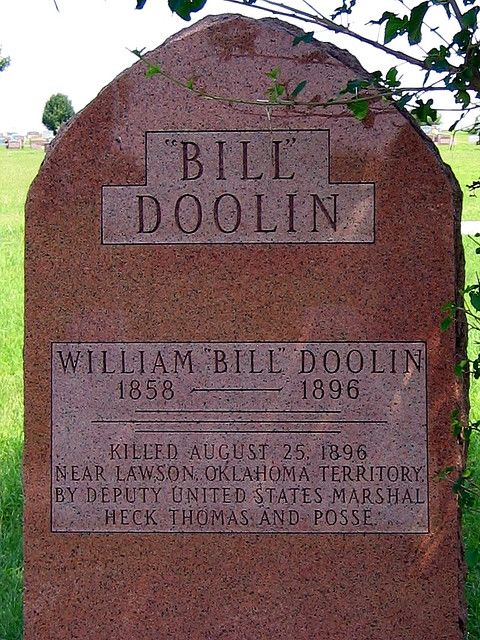
“Woman don’t try to love me
Don’t try to understand
A life upon the road is the life of an outlaw man” – Outlaw Man (David Blue)
Note: For a more detailed account of the pursuit, apprehension, and demise of the Doolin-Dalton gang read Principles of Posse Management: Lessons From the Old West for Today’s Leaders, by Chris Enss.
Sources:
https://www.history.com/this-day-in-history/outlaw-bill-doolin-is-killed
https://en.wikipedia.org/wiki/Desperado_(Eagles_album
https://en.wikipedia.org/wiki/Eagles_(band)
https://en.wikipedia.org/wiki/Wild_Bunch
https://en.wikipedia.org/wiki/Dalton_Gang
https://www.songfacts.com/facts/eagles/desperado
https://en.wikipedia.org/wiki/Outlaw_Man
All photos sourced through internet searches, none belong to the author
